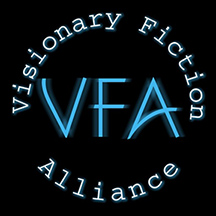Before I begin this post, I’d like to announce that I’ll soon be releasing the 2nd edition of Unison that will include a lexicon, cast sheet and behind the scenes look at what inspired me to write this novel.
Life has been very busy as of late. In addition to my writing, I homeschool and have become a soccer mom, girl scout mom and dance class mom. All the running around stressed me out a little, and I grounded myself with mindful awareness meditation. Little did I know that I was about to enter the ordeal stage of the hero’s journey when I was reminded how there are people who will attack you for reasons you may never know. It happened three times in one week! I didn’t respond to these people as I didn’t want to be pulled into their drama, which is what they subconsciously crave. Instead, I offered the individuals who challenged me love and kindness. I meditated until I felt it sincerely in my heart. By not reacting to the negativity, I uncover lessons I need to learn, and I emerge stronger and more resolute that I’m on the right path. It never ceases to amaze me how negative people can help us grow positively! To quote the message my Higher Self sent me while meditating:
“It’s not about being right or wrong. It’s all about the experience.”
That one little message from my meditation has saved me so many times and continues to help me grow. It’s the only way to live a happy and fulfilling life. It’s also something I teach my children. There will always be nasty and vindictive people in the world, and you’ll come out on top if you handle it with grace. You do that by continuing to do what you’re doing. If you’re on the right path, no one can knock you off of it, even with a mack truck!
Now on to the writing stuff!
Throughout these last few difficult weeks, I continued with my editing of The Sixth, which is the second book in the Spheral Series. As with all my other novels, I plotted it using the hero’s journey and then fine tuned it with Dramatica, which helps me to detect plot holes, even before I begin writing. The main reason I appreciate Dramatica is it presents the story as a grand argument. It taps into my inner-geek. I find that the emotional hero’s journey, and the intellectual Dramatica have almost a yin-yang quality when used together. Interestingly, I was focusing on the ordeal stage of the hero’s journey for my story. Talk about synchronicity!
When Art Imitates Life
The ordeal is the eighth plot point in the hero’s journey. Ideally, it should fall at the halfway point of a novel. For some reason, which I’ve yet to figure out, this plot point always gives me the most trouble and is typically the last one to come together for me. And it usually does so when I edit. As I’m an organic writer, I don’t like to force a scene. I know that it will come to me when it’s ready to reveal itself. I was also reserved to the possibility that this story might not need a physical life/death ordeal. I had accomplished that symbolically and emotionally. In Unison, the shift was similar. My protagonist’s old way of thinking was forced out by a revelation that revealed a hidden aspect of himself. However, The Sixth is more of a straight-forward adventure. My intuition told me I needed a more active scene.
Before I went to bed, I’d asked for an ordeal scene to come to me. I knew where it would most likely happen and envisioned the scene as I’d written it. Moments later, it expanded and played out before me, without words. (Verbal cues typically come to me in the morning, when I’m first waking up). The next morning I wrote the scene while I sipped my morning Starbucks coffee. I’ll just state here that Stephen King was spot on when he said that if you have a great scene, you don’t have to write it down because you won’t forget it. Phrases are entirely different. I write them down as soon as they come to me.
I was a truly happy writer after I’d completed the scene. It added more intensity, deepened the characterization and foreshadowed the return of the elixir, the last plot point, in part three.
The best stories have constant motion. They keep moving even during lulls, and the goal should always be obvious, even when it isn’t outwardly mentioned. My writer’s intuition has strengthened to the point where I can tell when something is missing. Understanding structure keeps me from having to do many rewrites and gives me the confidence to know my story works before I write the first draft.
Love and light,
Eleni




